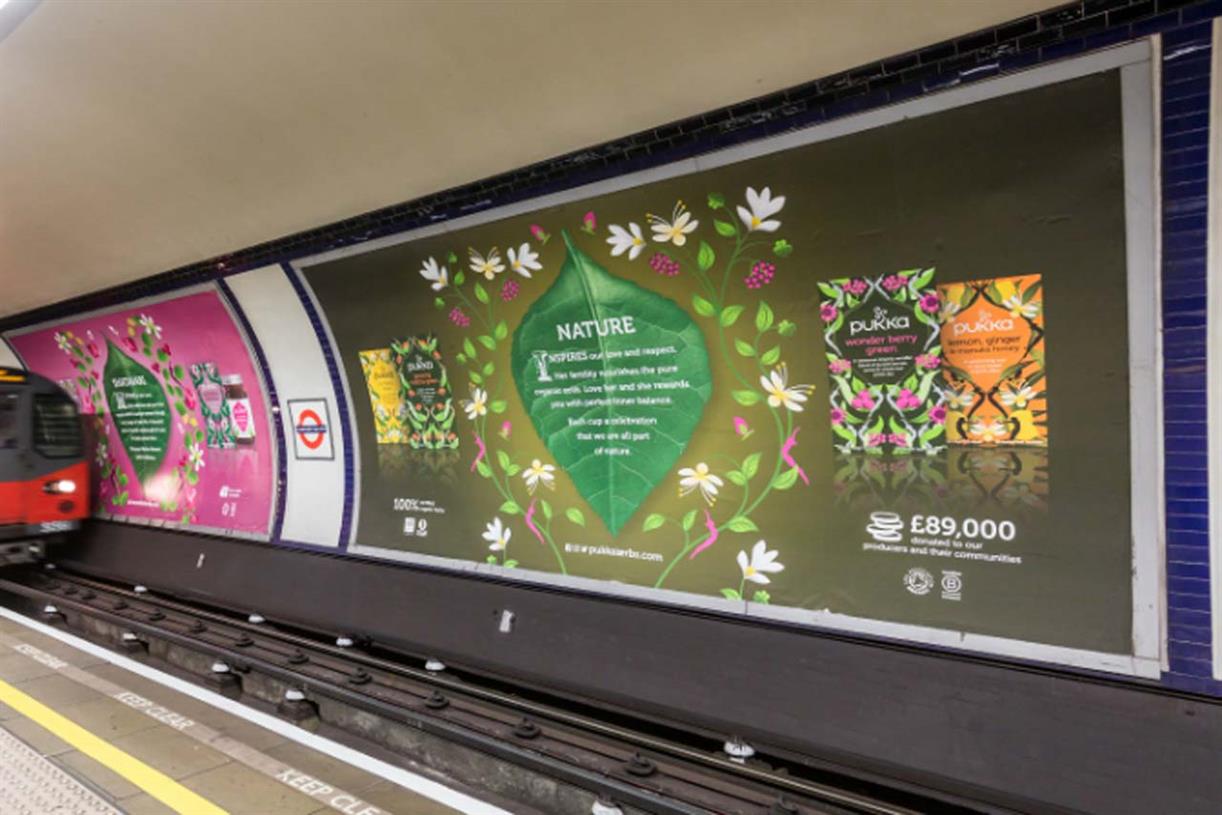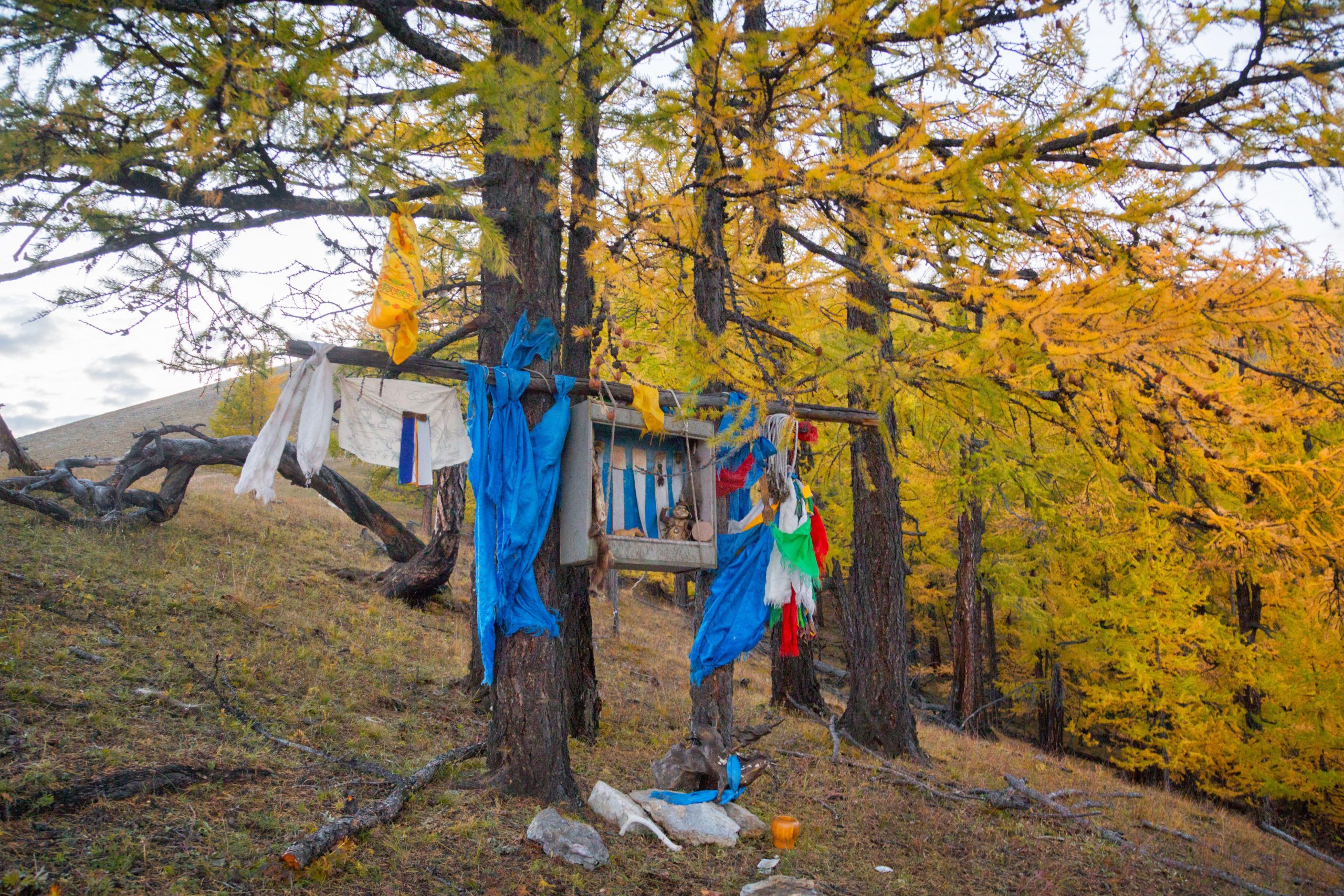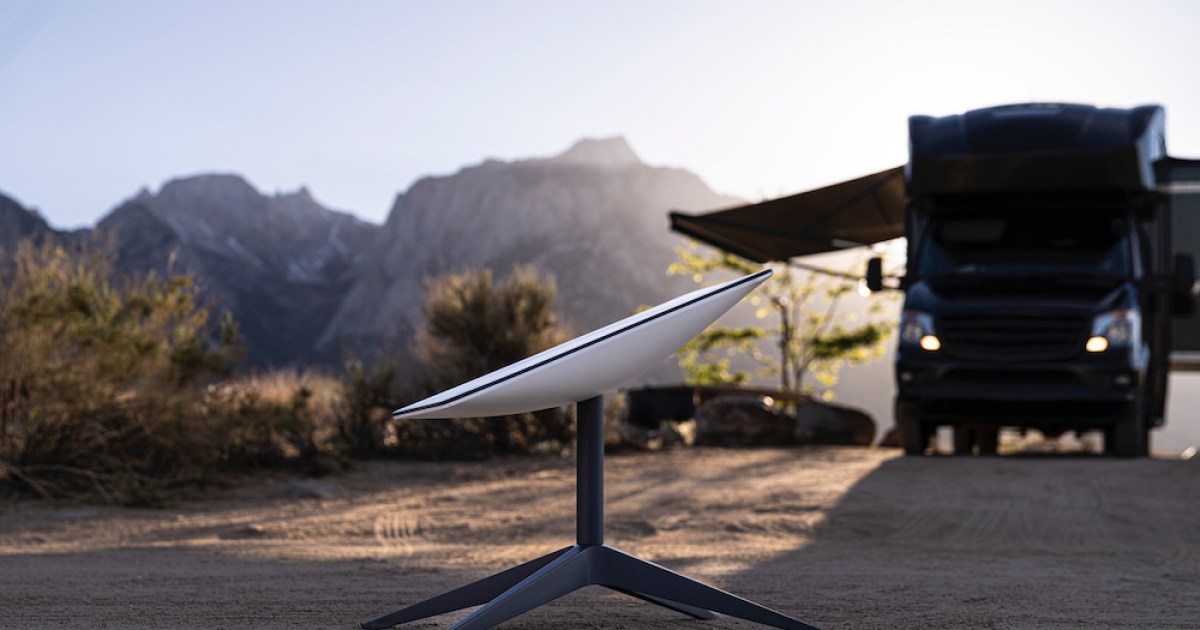This M’sian started her leather crafts biz at 24, has served clients like Rolls-Royce & LV
Fourjei is a Malaysian brand selling handmade leather crafts and bags in KL. The brand uses genuine leather and prices start from RM17.
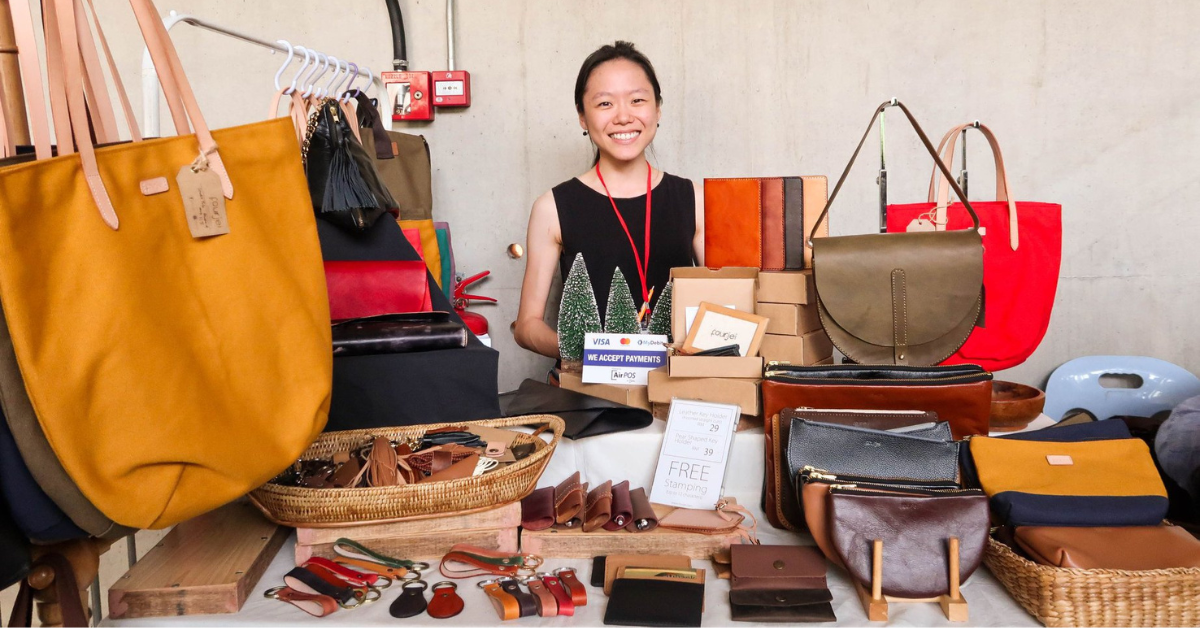
There’s a common belief that turning your hobby into a business would kill it. And to some degree, that may be true.
But Ngoo Sze Jie didn’t let that stop her from establishing Fourjei, a business selling premium handcrafted leather and canvas goods, at just 24 years old.
“I thought the best time to venture into something is when I have less commitment in life. The longer I wait, the less daring I’d become,” she stated.
So when her one-year contract with the architectural firm she was at was up, she figured it was now or never.
Nine years in, and she’s never looked back since.
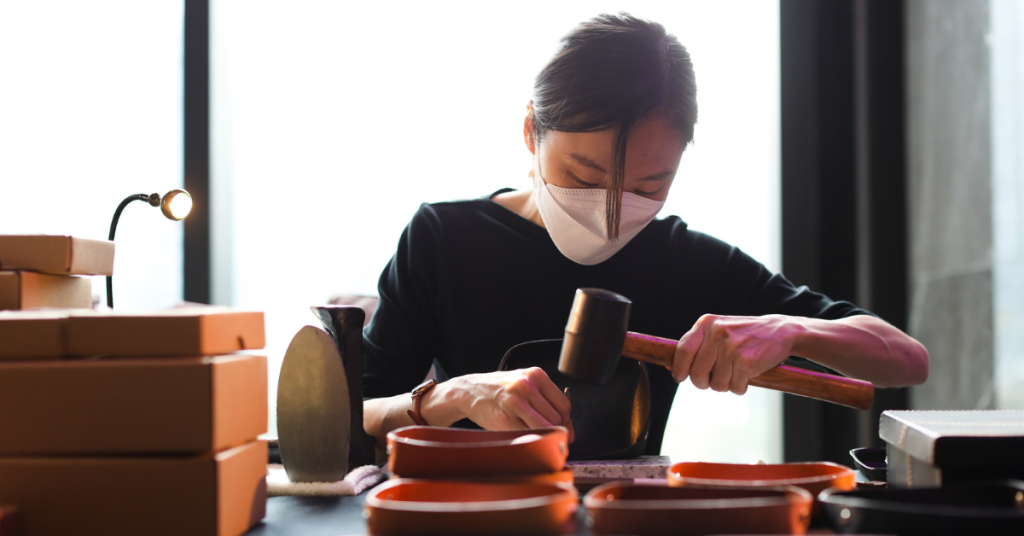 Image Credit: Fourjei
Image Credit: FourjeiTaking a leap of faith
Fourjei initially began as a passion project in 2010 while Sze Jie was still an architecture student at USM (Universiti Sains Malaysia) in Penang. To wind down and earn some extra money, she would design and sew fabric bags, pouches, and accessories on semester breaks.
Needlework was a skill she picked up from her mum as a kid. It also helped that she had a passionate art teacher in primary school who encouraged her crafting interest.
Back then, she would hand-sew dresses and other clothes for her Barbie dolls. She’d even make miniature furniture to embellish her doll set.
This venture continued past her university days and became her part-time hustle while working as an assistant architect.
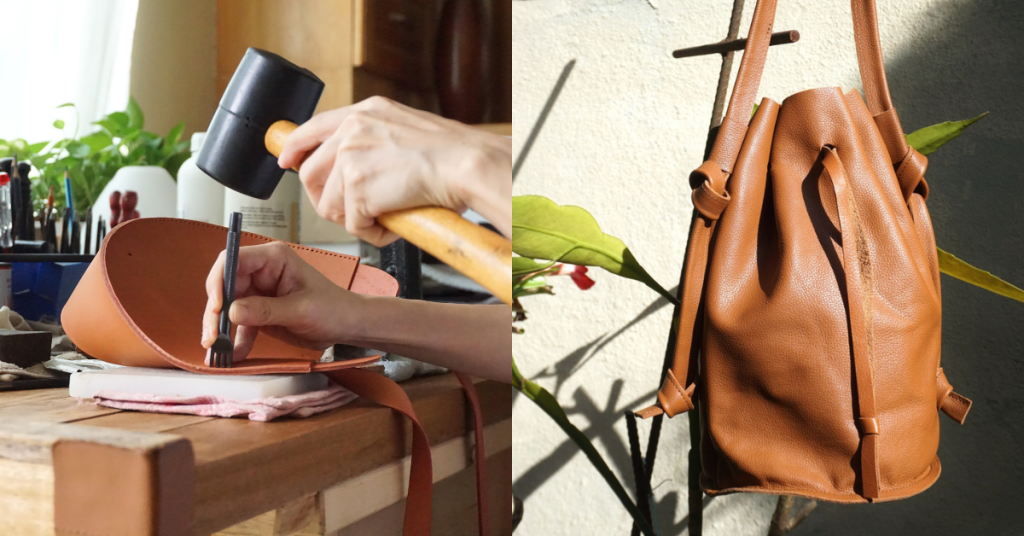 Image Credit: Fourjei
Image Credit: FourjeiThroughout her one-year tenure at TR Hamzah & Yeang, Sze Jie found herself envisioning a future of just crafting.
“By practice, the architectural work of designing and constructing a building or township is a tedious and long process. It requires passion to enjoy and fully embrace the work culture in this industry,” she shared.
While working there, she found herself struggling to come to terms with working on screens and drawings for long hours. She instead enjoyed more hands-on work.
Hence she decided to take a leap of faith when the opportunity came.
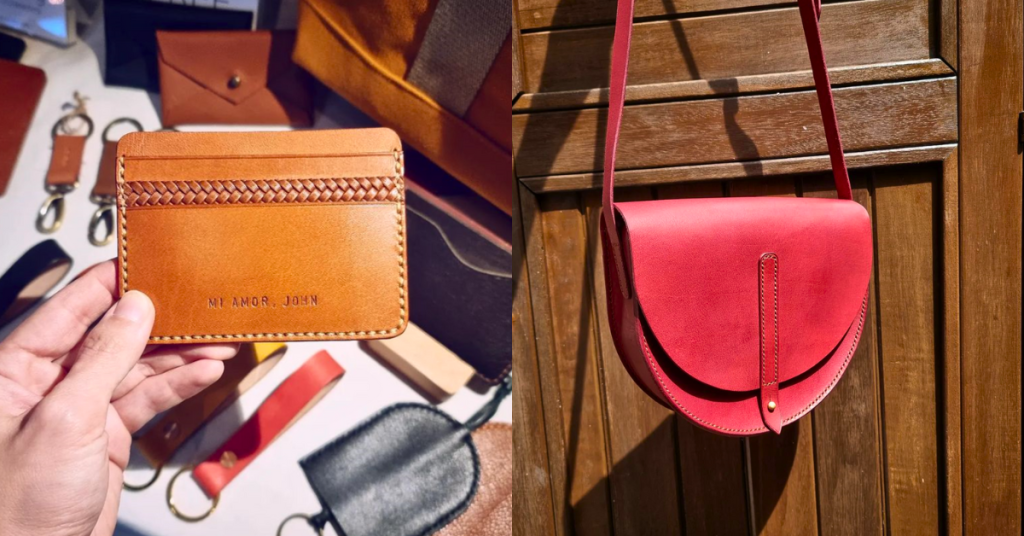 Image Credit: Fourjei
Image Credit: FourjeiFrom architecture to leather craftswoman
Upon quitting her first architectural job, she decided to take up leather crafting to upskill and widen the business’ product range.
That’s how she landed in Bangkok, Thailand, for a leather crafting course hosted by an ex-architect.
For six days, Sze Jie and the other students learnt the step-by-step process of handcrafting leather from scratch. This included template-making, saddle stitching, and how to incorporate different metal fixtures into leather articles.
At the end of it, everyone showcased their works to the class. “I think that was the most memorable part of the course,” Sze Jie recalled. “I got to ‘fast track’ my learning by observing how different bags are made since everybody took up unique projects.”
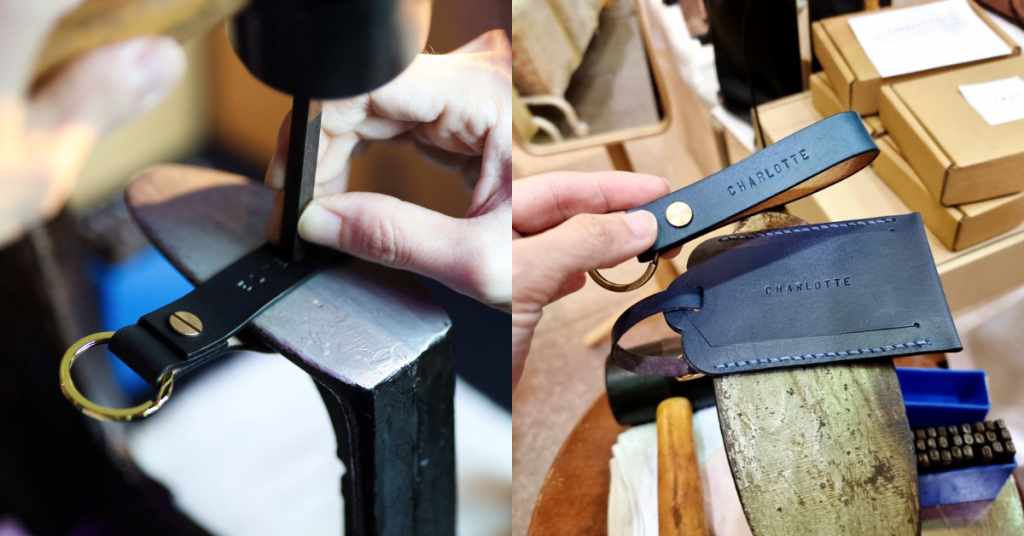 Image Credit: Fourjei
Image Credit: FourjeiAfterwards, she returned to Malaysia and officially launched Fourjei as her registered full-time venture.
The business began selling only canvas totes and bags together with some leather key holders. Sze Jie would frequently join pop-up events to get the word out while also getting in tune with market preferences.
Over time, Fourjei’s catalogue expanded to meet the demands of different customer segments. Most of her products are gender-neutral which helps make them more appealing to a wider audience, particularly to those shopping for others.
Her best-selling products include the sunglasses case (RM220), Anne half-moon bag (RM690), and card holders and wallets (starts from RM79).
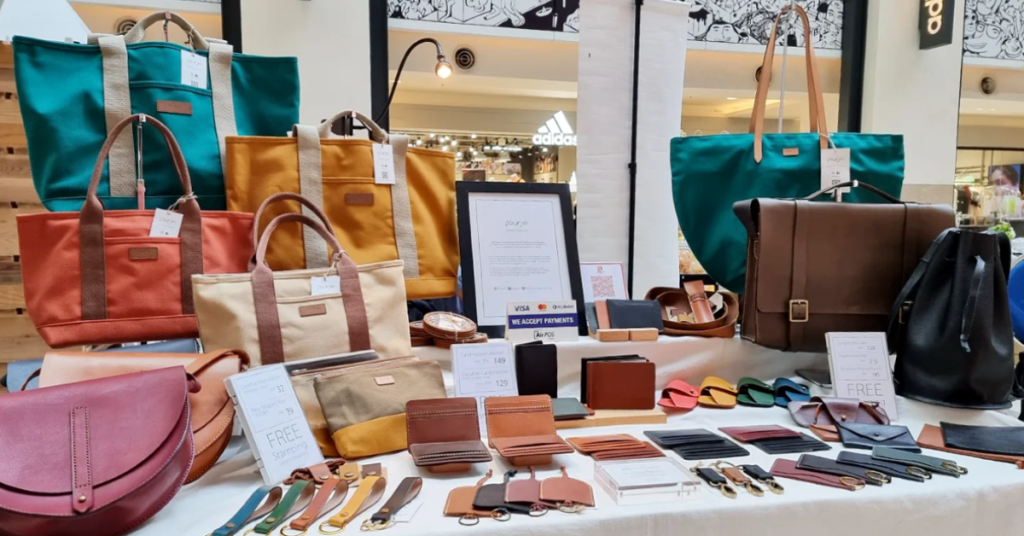 Image Credit: Fourjei
Image Credit: FourjeiA worthy trade-off
All of Fourjei’s products are still made by Sze Jie herself. Occasionally the brand would hire part-timers to assist at pop-up and corporate events.
She usually makes each item in small batches to save time and be more cost efficient. A leather bag would take up to three days to make, while 20 card holders of different colours would take at least a week.
More complex bags require more time for R&D. Unconventional material combinations like fabrics and leather also need a few rounds of trial and error to get right.
“We’re a profitable business although speaking frankly, it’s not the job you would stick with if you want a lavish lifestyle,” Sze Jie confided. “But I find this trade-off worth it because I have flexibility and full control of my time and the business.”
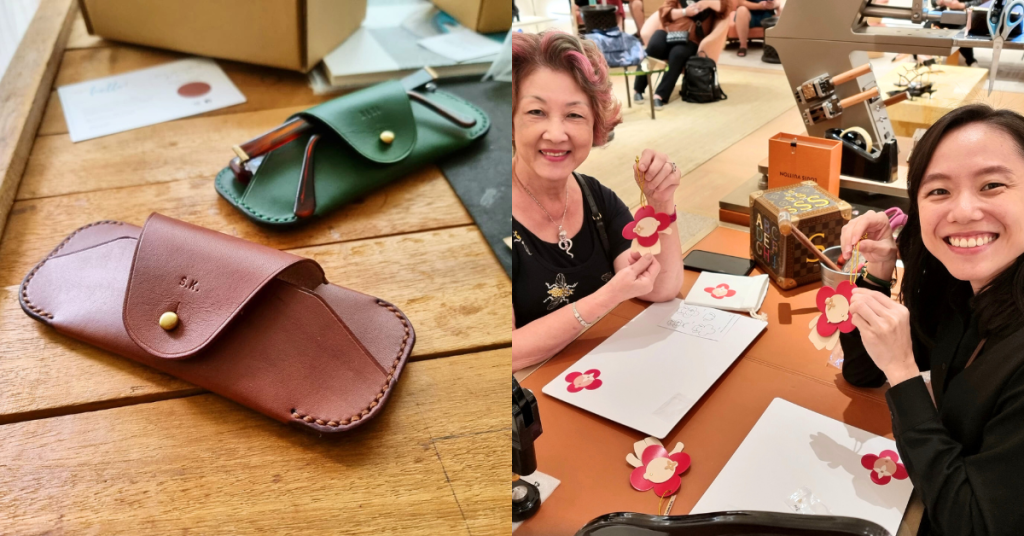 Sunglasses case (left) & a leather crafting workshop in collaboration with Louis Vuitton Malaysia (right) / Image Credit: Fourjei
Sunglasses case (left) & a leather crafting workshop in collaboration with Louis Vuitton Malaysia (right) / Image Credit: FourjeiDespite being a small business, she’s discovered three key ways to keep it sustainable:
Making sure she’s actually paid for her hard work Being diligent with the business’s accounting and making necessary adjustments to cut costs and improve sales Cutting down on material waste by turning remnants into smaller leather or canvas goodsFourjei just turned nine years old in February so it’s safe to say that these practices work for her.
Sze Jie also credited the corporate orders she received in her first year for spurring the business’s growth.
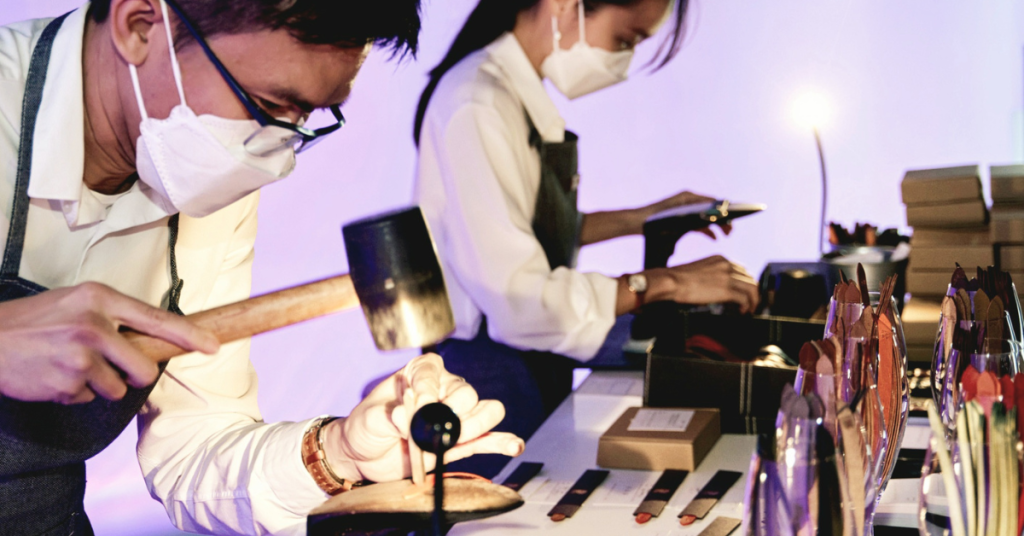 Personalised door gifts commissioned by Rolls-Royce Motor Cars Kuala Lumpur at their prestigious debut of Rolls-Royce’s first fully-electric car in Kuala Lumpur / Image Credit: Fourjei
Personalised door gifts commissioned by Rolls-Royce Motor Cars Kuala Lumpur at their prestigious debut of Rolls-Royce’s first fully-electric car in Kuala Lumpur / Image Credit: FourjeiSuccess is personal to everyone
That said, one key challenge the brand has been facing is the rise of vegan leather in recent years.
It’s being marketed as a more environmentally-conscious option when they’re actually made from plastics. For context, Harpers Bazaar clarifies that most vegan leathers are made of PVC and PU, both of which are petroleum-based plastics.
In contrast, Sze Jie said that raw hides used by tanneries are often by-products from the food industry, meaning animals aren’t killed just for their skin. Genuine leather is also more durable which makes them greener.
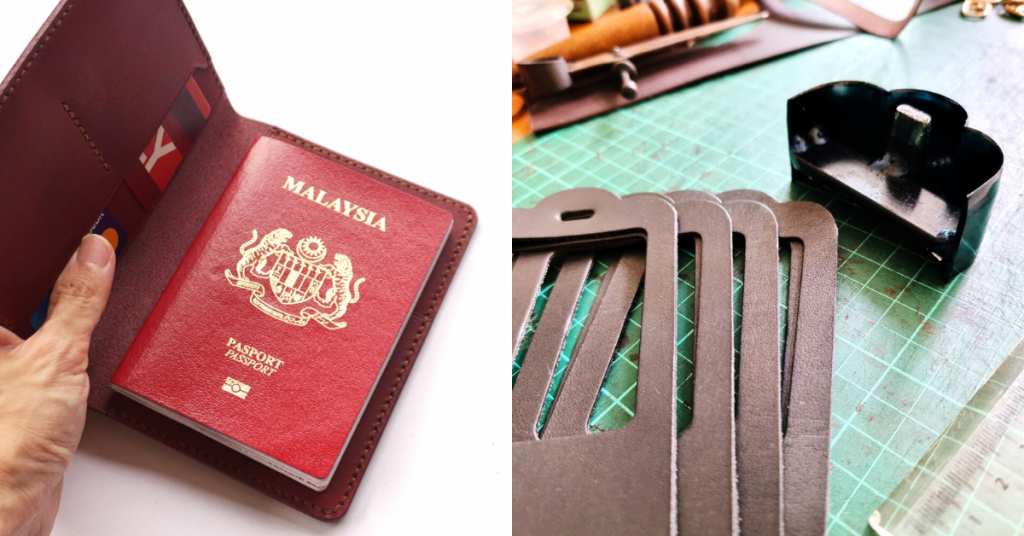 Image Credit: Fourjei
Image Credit: FourjeiThis is something that Sze Jie hopes to bring awareness to, alongside educating people on the value of handcrafted leather goods. Particularly as there are pricing disparities compared to mass-produced labels and international fashion houses.
In the long run, though, she doesn’t really have a long-term plan for Fourjei. Her focus is to continue making products that can last a lifetime and stay relevant in the market.
“To me, success for the brand means having a level of reputation of being well-established and known for its quality products,” she stated.
“I think being a niche, handmade and homegrown brand itself is already something to be proud of.”
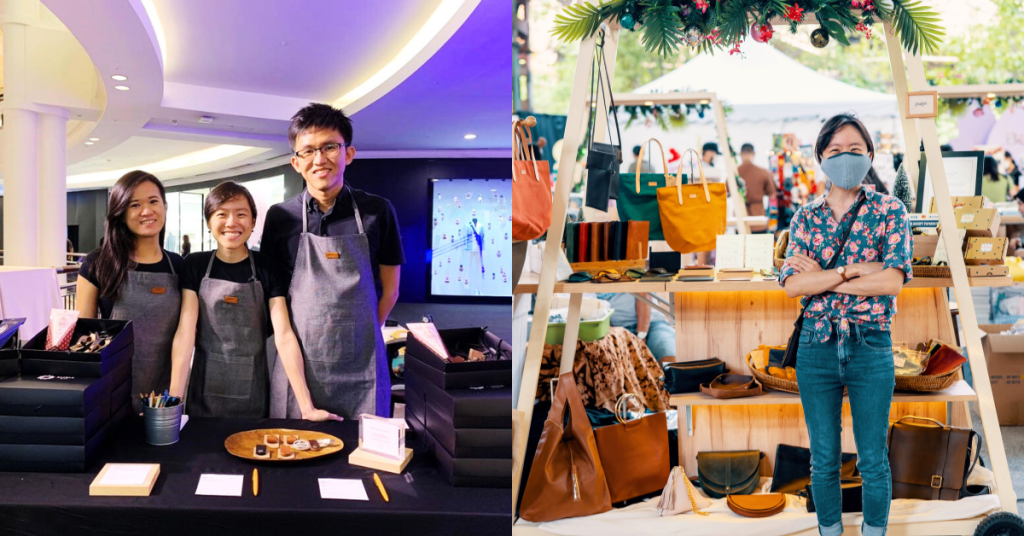 Image Credit: FourjeiLearn more about Fourjei here.
Read other articles we’ve written about Malaysian startups here.
Image Credit: FourjeiLearn more about Fourjei here.
Read other articles we’ve written about Malaysian startups here.
Featured Image Credit: Fourjei

 ValVades
ValVades 








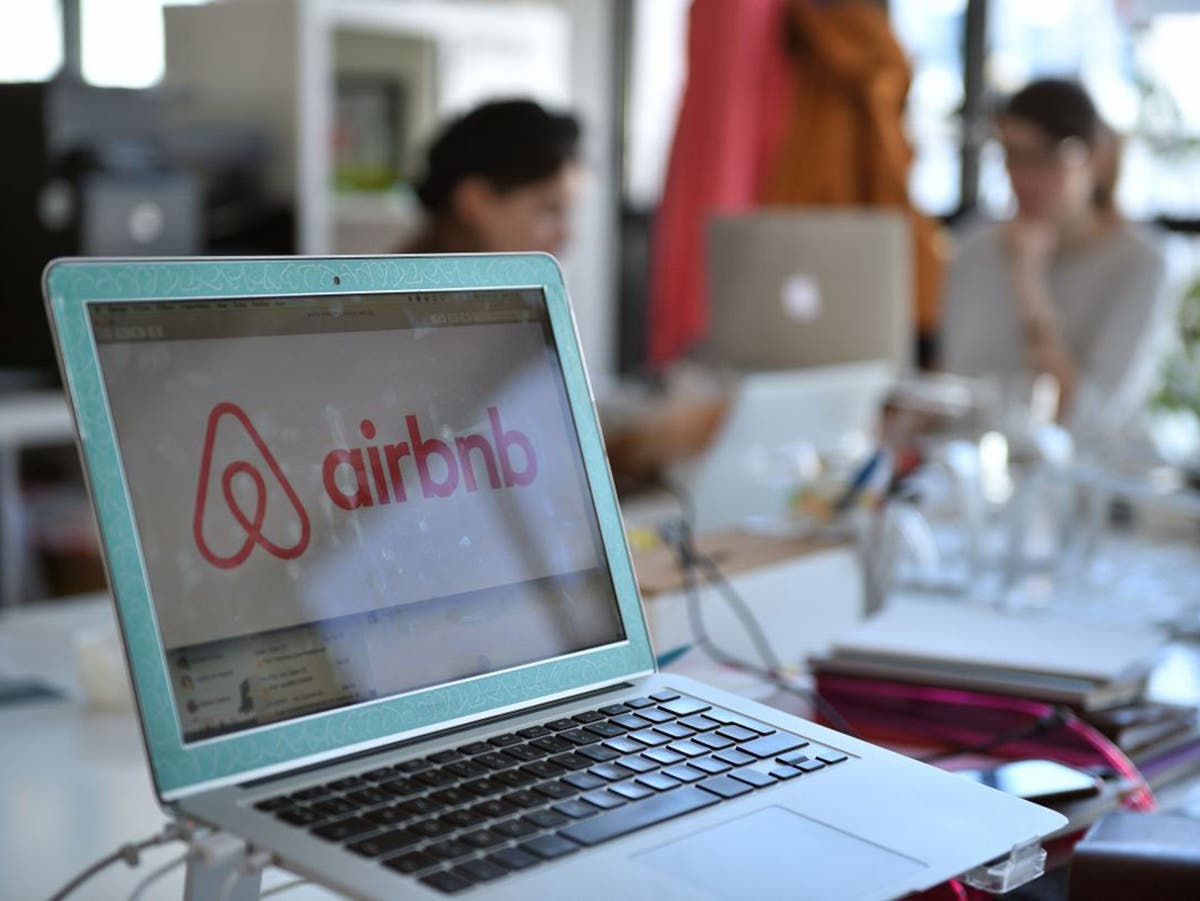
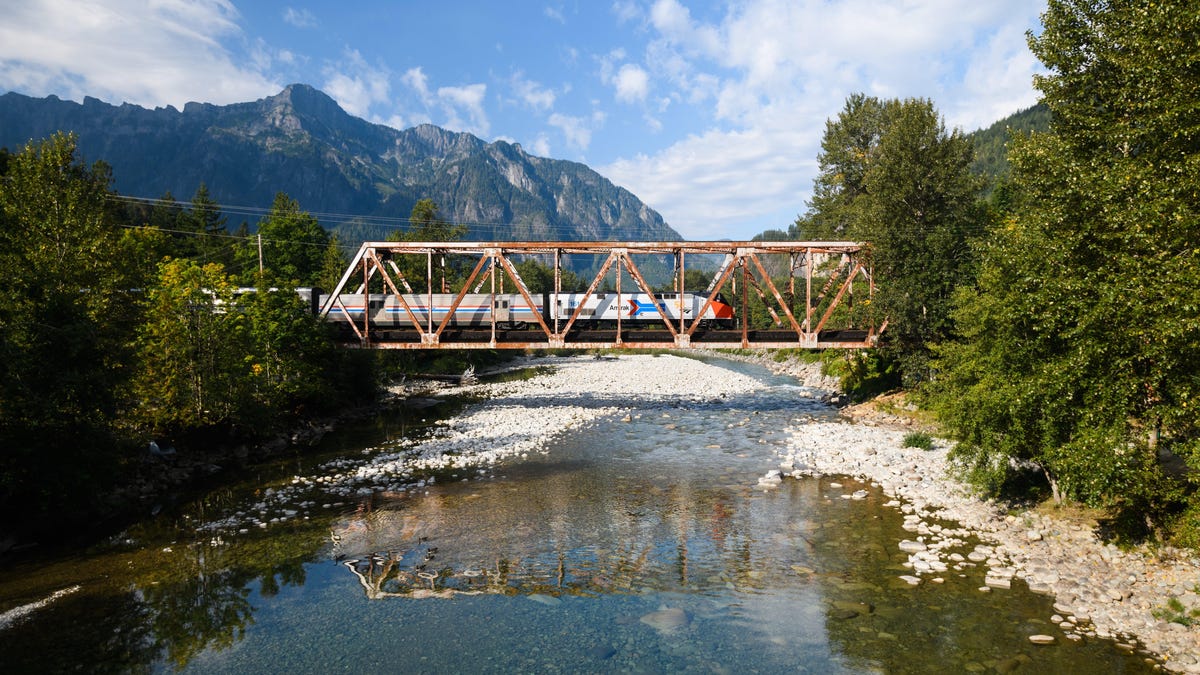
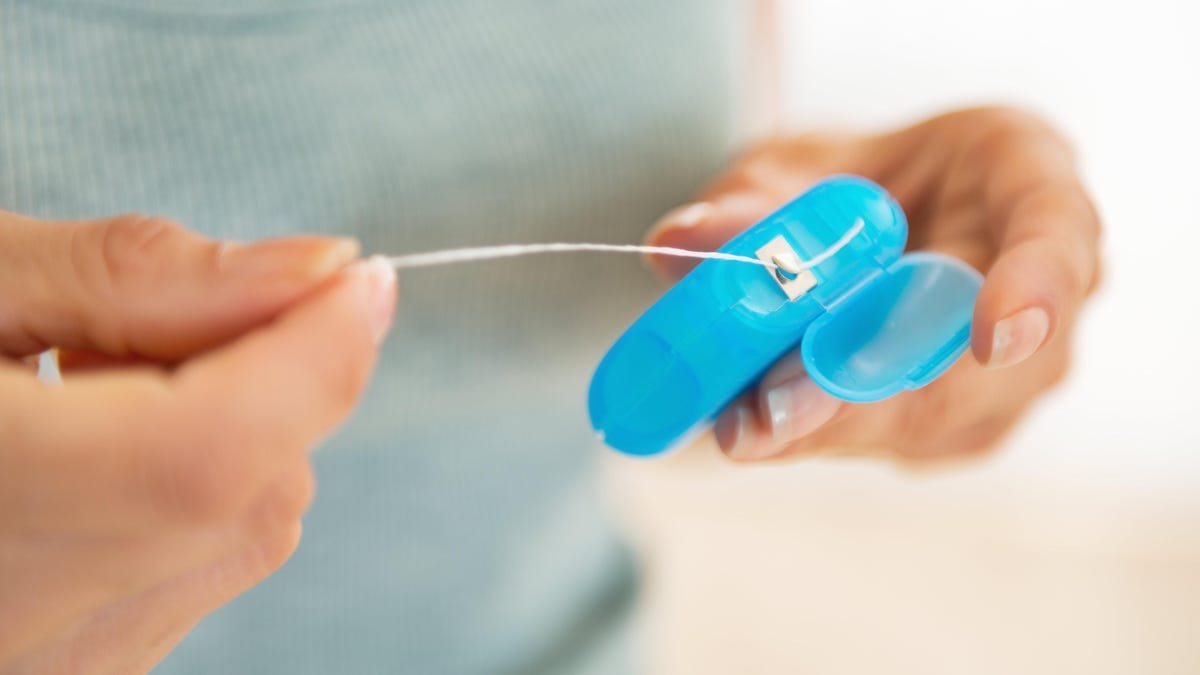



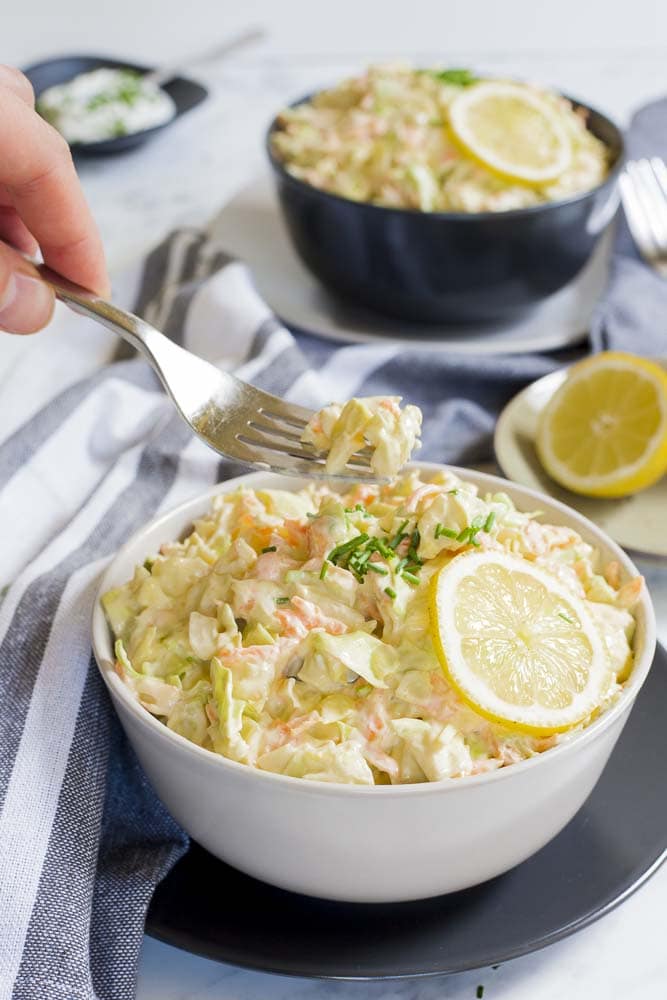
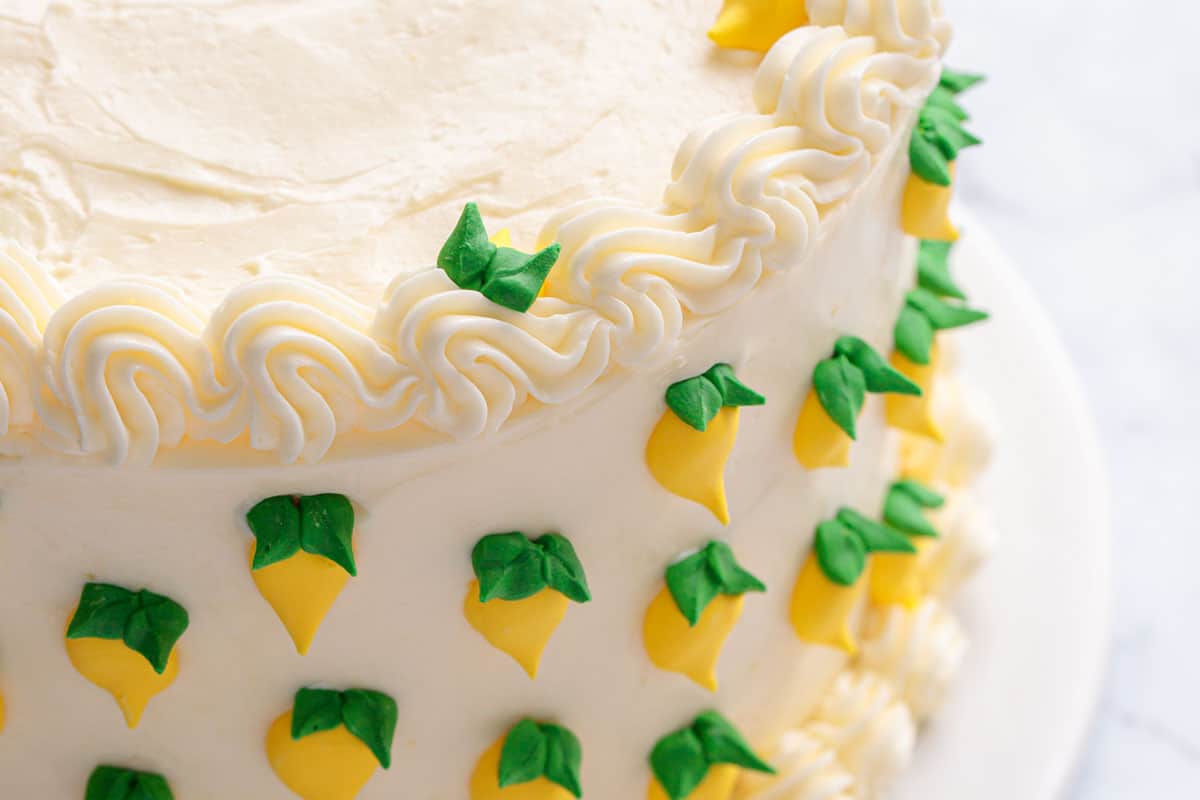

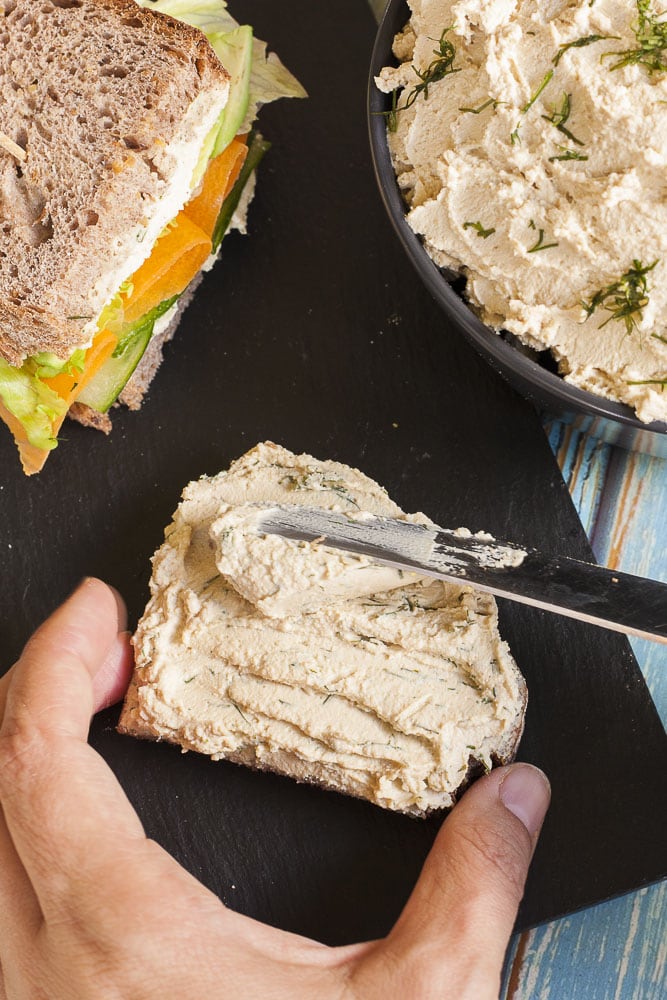
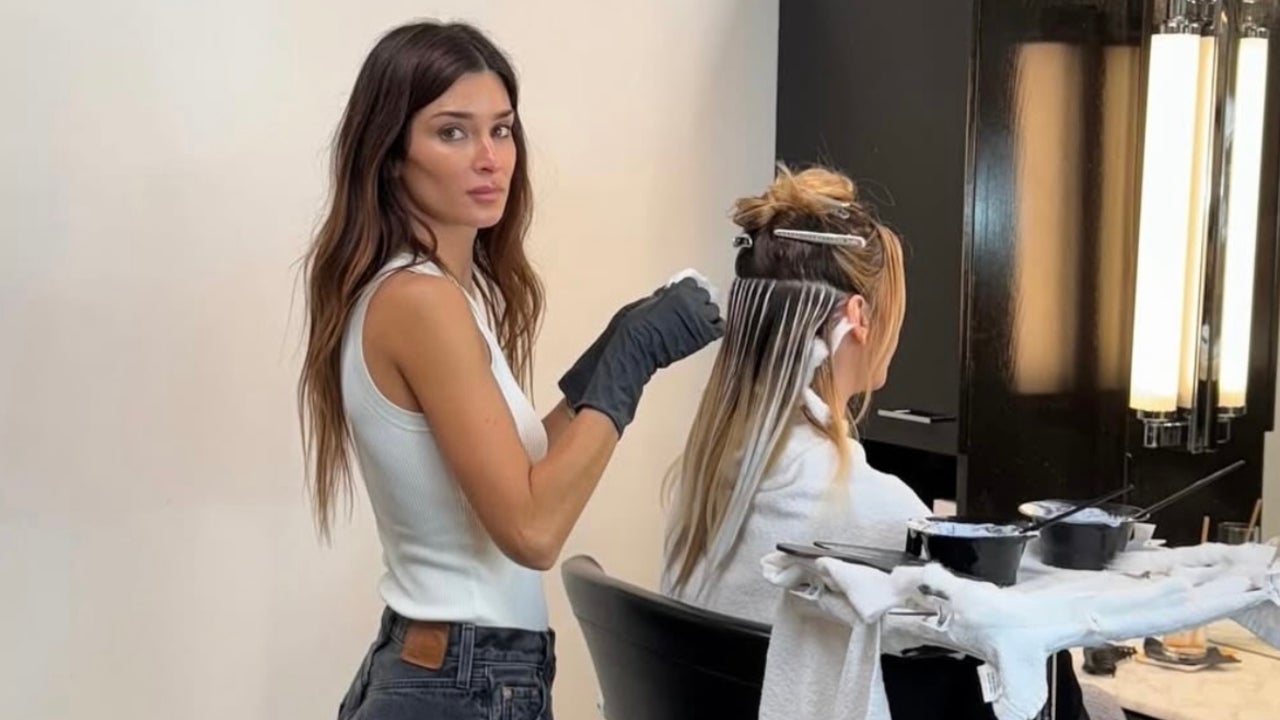




![Experts Don’t Believe AI Tools Will Lead to Mass Job Losses [Infographic]](https://imgproxy.divecdn.com/gcXE1_Da13Oz-JAszjUwb6v5UqMp2MFMjDAIXPbLad0/g:ce/rs:fit:770:435/Z3M6Ly9kaXZlc2l0ZS1zdG9yYWdlL2RpdmVpbWFnZS9haV9qb2JfbG9zc2VzLnBuZw==.webp)






